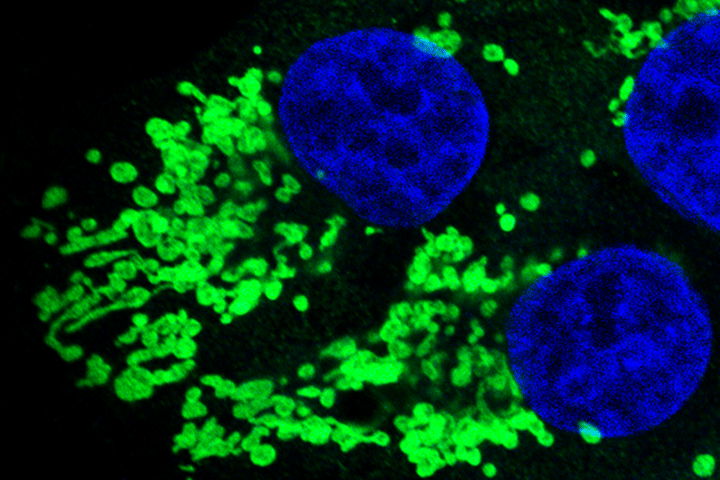Maintenance Chemotherapy Trial for Pancreatic Cancer Patients with the BRCA Mutation

Can a chemotherapy targeted to a group of patients with specific gene mutations prevent metastatic pancreatic cancer from progressing?
That is the question being explored in a clinical trial for patients with inherited BRCA mutations who have metastasized pancreatic cancer that is not progressing. Patients in this trial must also have initially received platinum-based treatment.
Adding a PARP Inhibitor
The treatment under study includes a PARP inhibitor, a type of drug that works well in patients with the BRCA mutation. The PARP enzyme is important in repairing small breaks in single DNA strands. Drugs that block the action of PARP—PARP inhibitors like olaparib, the drug in this study—make the enzyme less effective at repairing the small breaks. When the DNA makes copies of itself, or replicates, these breaks in the strands are also copied, causing the cell to die. Cancer cells replicate their DNA more often than normal cells, which is why PARP inhibitors can be an effective part of cancer treatment.
What Are BRCA Mutations?
BRCA mutations are mostly inherited, and most common in Ashkenazi Jews, Norwegian, Dutch, and Icelandic people. BRCA1 and BRCA2 genes normally function as tumor suppressor proteins and these genes make sure that damaged DNA is repaired properly. When the BRCA genes are mutated, DNA does not get repaired properly, leading to more mutations and increasing the likelihood of developing cancer. People carrying BRCA1 and BRCA2 mutations are at increased risk of developing breast, ovarian, and pancreatic cancer.
Because the DNA of BRCA carriers does not get properly repaired, PARP inhibitors may work particularly well on their cancers.
The trial is randomized—some patients will receive olaparib while others receive a placebo—and researchers do not know which patients are getting the drug. Participants must have undergone initial chemotherapy with platinum-based drugs such as cisplatin, carboplatin, or oxaliplatin.
We encourage you to consult your physicians for clinical trials that may be right for you. The website ClinicalTrials.gov provides more details about this trial as well as many others. You can visit the Let’s Win Trial Finder for a listing of all active pancreatic cancer clinical trials.
This trial is active but no longer recruiting patients. Olaparib (brand name Lynparza), the drug being studied, has been approved by the FDA as maintenance chemotherapy for metastatic pancreatic cancer patients who carry the BRCA mutation.
To find out more about BRCA mutations and pancreatic cancer, read “Understanding a Family’s Risk for Pancreatic Cancer” and other stories about patients with BRCA mutations.






